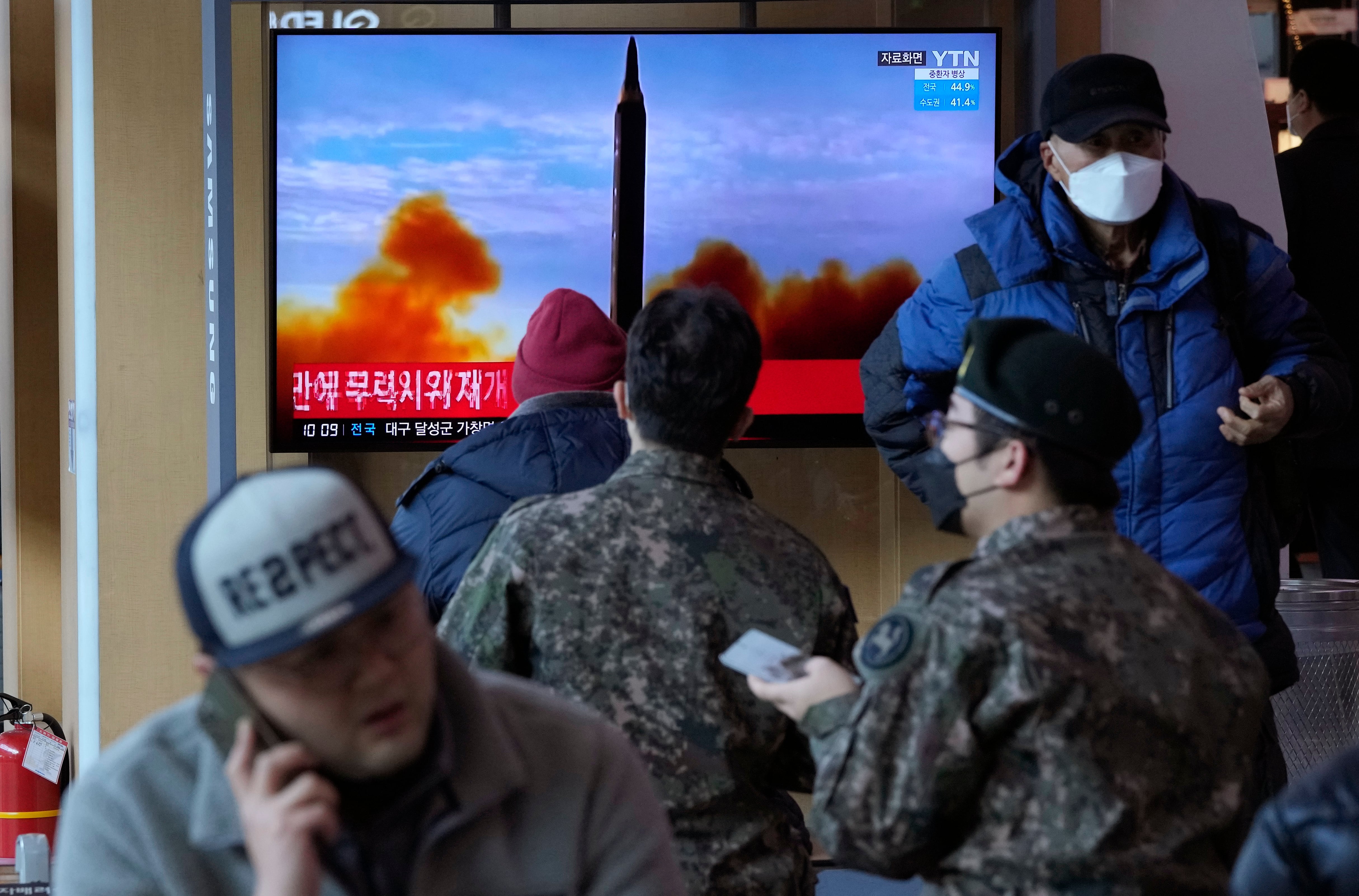SEOUL, South Korea — South Korea said North Korea fired an unidentified projectile but the launch Wednesday apparently ended in a failure.
The launch was made from the Pyongyang region around 9:30 a.m. before the apparent failure, South Korea’s Joint Chiefs of Staff said in a statement, adding that South Korean and U.S. intelligence authorities were analyzing details of the launch.
RELATED

North Korea had been expected to fire an intercontinental ballistic missile soon in its most significant provocation since 2017.
The U.S. and South Korean militaries said last week that North Korea had tested an ICBM system in two recent launches, referring to the developmental Hwasong-17 missile that North Korea unveiled during a military parade in October 2020.
In the two recent launches on Feb. 27 and March 5, the North Korean missiles flew medium-range distances, and experts have said North Korea could eventually perform a full-range ICBM test.
The North has said it tested cameras and other systems for a spy satellite and released what it said were photos taken from space during those tests, but it didn’t confirm what rocket or missile it launched.
Experts say North Korea aims to boost its ICBM capability while trying to place its first spy satellite into orbit. North Korean leader Kim Jong Un has vowed to acquire an improved ICBM and a spy satellite among an array of sophisticated weapons systems he says he needs to cope with what he calls American hostility.
The Hwasong-17 is North Korea’s biggest missile, which could potentially fly up to 15,000 kilometers (9,320 miles), far enough to strike anywhere in the U.S. and beyond. The 25-meter (82-foot) missile, which was shown again at a defense exhibition in Pyongyang last year, has yet to be test-launched.
North Korea has already demonstrated the potential to reach the U.S. mainland with flight tests of other ICBMs, the Hwasong-14 and Hwasong-15, in 2017. Some analysts say developing a larger missile could mean the country is trying to arm its long-range weapons with multiple warheads to overcome missile defense systems.
In recent months, North Korea has conducted a spate of missile tests in what experts say are attempts to modernize its arsenal and pressure the Biden administration as nuclear disarmament talks remain stalled.




